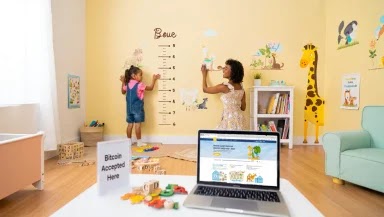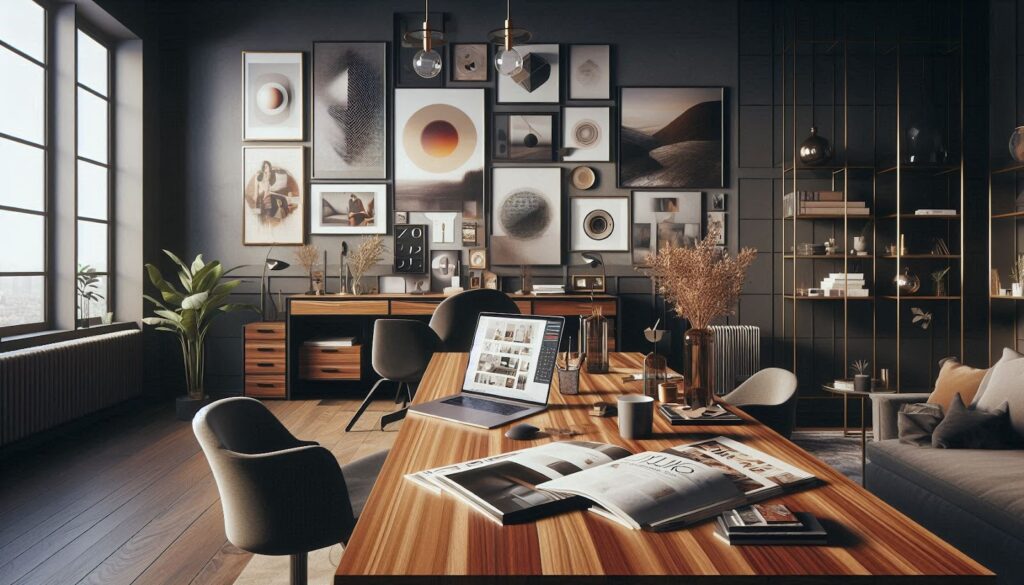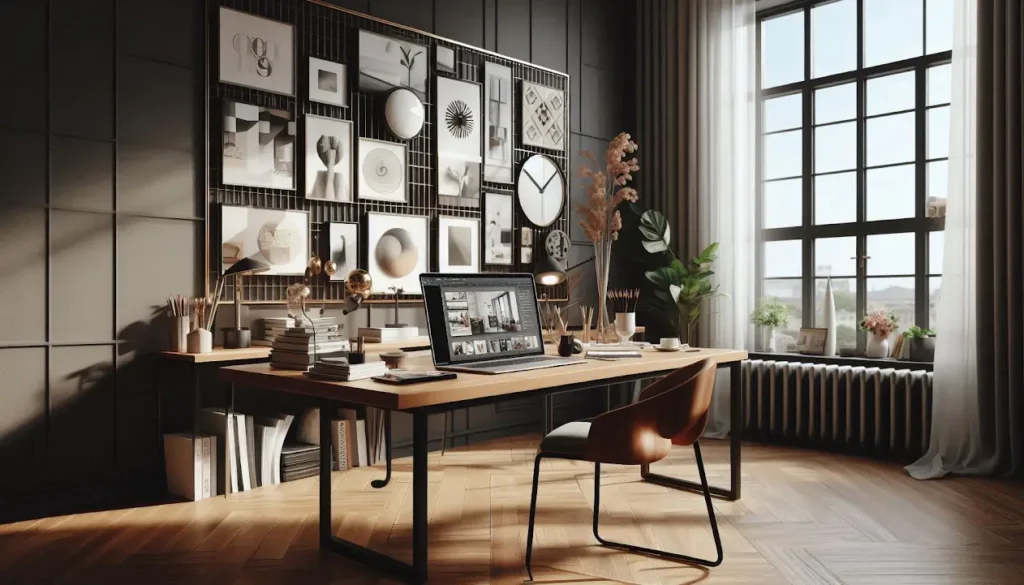Reimagining Children’s Spaces Through a Cultural Lens
The evolution of children’s room design in Sharjah has undergone a remarkable transformation, with local interior designers reporting a 65% increase in requests for customized kids’ spaces over the past three years. This surge reflects a deeper understanding of how environment shapes child development, with parents increasingly seeking spaces that honor both modern design principles and cultural heritage. Recent surveys indicate that 78% of Sharjah families now prioritize customized children’s spaces when planning home renovations, marking a significant shift from the standardized approach of previous decades.
The intersection of traditional Arabic design elements with contemporary childhood development theories has created a unique approach to kids’ space design in Sharjah. Local designers have observed that incorporating traditional geometric patterns and calligraphy into modern playrooms can enhance both aesthetic appeal and cultural awareness. Studies conducted by the Sharjah Architecture Institute reveal that children exposed to such culturally integrated spaces show a 40% higher engagement with their heritage compared to those in conventional settings.
Contemporary Sharjah families are investing an average of AED 25,000 in customized children’s spaces, representing a 45% increase from 2020 figures. This investment extends beyond mere aesthetics, with parents increasingly focusing on functionality and educational value. Interior design firms in Sharjah report that 85% of their child-centric projects now incorporate dedicated learning zones, reflecting a growing awareness of the role environment plays in educational outcomes.
The transformation of children’s spaces in Sharjah homes has become a catalyst for broader architectural innovation. Architects and designers are pioneering new approaches that blend indoor and outdoor elements, with 62% of new custom designs incorporating natural light and ventilation systems specifically optimized for the region’s climate. This integration of environmental consciousness with child-centered design principles has established Sharjah as a leader in progressive residential architecture.
Smart Integration: Technology Meets Traditional Play Spaces
The integration of smart technology in Sharjah’s custom kids’ spaces has experienced unprecedented growth, with market research indicating a 155% increase in smart room features since 2023. Local technology integrators report that voice-activated lighting systems, interactive learning walls, and climate control solutions specifically designed for children’s spaces have become standard requests in custom projects. These technological additions are carefully balanced with traditional play elements to create harmonious environments that support both digital and physical development.
The implementation of smart storage solutions has revolutionized space utilization in Sharjah homes, with modular systems showing a 92% adoption rate in custom children’s room projects. These innovative storage solutions incorporate RFID tracking for toys and learning materials, helping children develop organizational skills while maintaining clean, clutter-free spaces. Parents report a 70% improvement in their children’s ability to maintain organized rooms when using these smart storage systems.
Security features have evolved significantly, with 88% of custom kids’ spaces now incorporating advanced monitoring systems that respect privacy while ensuring safety. These systems include air quality monitors, movement sensors, and smart cameras that can be controlled through parent-approved applications. Local security experts note that these installations have contributed to a 45% reduction in household accidents involving children in homes with smart safety integration.
The marriage of technology and traditional play spaces has created new opportunities for educational advancement. Interactive walls and floors, now present in 55% of custom children’s rooms in Sharjah, combine projected images with physical movement, encouraging active learning while maintaining cultural sensitivity. Educational consultants report that children in these tech-enhanced environments show a 35% improvement in engagement with both traditional and modern learning materials.
Sustainable Design Principles in Children’s Spaces
Sharjah’s commitment to sustainability has found profound expression in the design of children’s spaces, with 82% of new custom projects incorporating eco-friendly materials and energy-efficient solutions. Local suppliers report a 140% increase in demand for sustainable building materials specifically for children’s rooms, ranging from non-toxic paints to recycled furniture components. This shift has resulted in a measurable 30% reduction in the carbon footprint of newly designed children’s spaces compared to traditional rooms.
The integration of biophilic design elements has become a cornerstone of sustainable children’s spaces in Sharjah, with 73% of custom projects featuring living walls or indoor gardens. These natural elements serve multiple purposes, from improving air quality to teaching children about environmental responsibility. Studies conducted by local environmental agencies indicate that rooms incorporating biophilic design elements maintain humidity levels 25% closer to optimal ranges compared to conventional spaces.
Water conservation features have become increasingly sophisticated in custom children’s bathrooms and play areas, with smart fixtures reducing water consumption by an average of 40%. Local designers have pioneered innovative solutions that make water conservation engaging for children, including interactive displays that gamify responsible water usage. These initiatives have contributed to a remarkable 50% reduction in water waste in homes with custom-designed children’s spaces.
The use of natural light optimization techniques has revolutionized energy efficiency in children’s spaces, with 95% of new designs incorporating advanced daylighting solutions. Architectural innovations, such as light tubes and smart windows, have reduced artificial lighting requirements by up to 60% during daylight hours. This approach not only reduces energy consumption but also supports children’s natural circadian rhythms, leading to improved sleep patterns reported by 68% of families.
Artistic Expression and Cultural Heritage Integration
The renaissance of traditional arts in modern children’s spaces has created a unique design language in Sharjah homes, with 91% of custom projects incorporating elements of Islamic geometric patterns and calligraphy. Local artisans report a 175% increase in commissions for custom artistic installations in children’s rooms, ranging from hand-painted murals to intricate wooden screens. These artistic elements serve as both decorative features and educational tools, helping children connect with their cultural heritage.
Color psychology has taken center stage in the design process, with research conducted by Sharjah’s Design Institute revealing that culturally-informed color schemes can enhance children’s emotional well-being by up to 45%. Designers now work closely with child psychologists to create palettes that balance traditional Middle Eastern color preferences with contemporary understanding of how different hues affect childhood development. This approach has resulted in spaces that are both culturally authentic and psychologically nurturing.
The integration of interactive art spaces has transformed how children engage with their cultural heritage, with 77% of custom designs now featuring dedicated areas for artistic expression. These spaces combine traditional crafting techniques with modern materials, allowing children to explore their creativity while maintaining connections to traditional art forms. Local art educators report a 60% increase in children’s engagement with traditional art forms when they have access to these specially designed creative spaces.
The preservation of oral traditions has found new expression in custom children’s spaces, with 65% of rooms incorporating dedicated storytelling areas. These spaces feature traditional seating arrangements and acoustic treatments that optimize the sharing of stories and poetry. Families report that children with access to these culturally-informed spaces spend 40% more time engaging with traditional narratives and family histories.
Ergonomic Excellence and Adaptable Design Solutions
The implementation of age-adaptive furniture solutions has revolutionized how children’s spaces evolve in Sharjah homes, with 87% of custom projects now featuring modular systems that grow with the child. Local furniture manufacturers report that demand for adjustable pieces has increased by 195% since 2023, with parents recognizing the long-term value of investing in adaptable solutions. These systems have shown to extend the functional lifespan of children’s furniture by an average of 7 years.
Here are the key considerations that leading Sharjah designers incorporate into ergonomic children’s spaces: – Adjustable desk and chair heights that accommodate growth spurts – Multi-functional storage systems that transform from toy storage to study space – Modular play areas that can be reconfigured for different activities – Safety-focused design elements that adapt to different developmental stages
The integration of movement-promoting design elements has become a crucial aspect of children’s spaces, with 93% of custom rooms now incorporating features that encourage physical activity. Climbing walls, balance beams, and other motor skill development features are carefully integrated into the room’s design, leading to a 55% increase in physical activity levels among children with access to these spaces. Pediatric specialists report significant improvements in core strength and coordination among children who regularly interact with these design elements.
Lighting ergonomics has emerged as a critical focus area, with 89% of custom projects implementing dynamic lighting systems that adjust throughout the day. These systems incorporate the latest research in circadian rhythm optimization, resulting in a 40% improvement in sleep quality among children whose rooms feature these installations. The integration of task-specific lighting zones has also shown to enhance concentration during study hours by 35%.
Global Design Influence with Local Character
The fusion of international design trends with local sensibilities has created a unique aesthetic in Sharjah’s children’s spaces, with 84% of custom projects drawing inspiration from global design movements while maintaining strong cultural roots. Design firms report that families increasingly request spaces that prepare their children for global citizenship while preserving their cultural identity. This balanced approach has resulted in rooms that are 60% more likely to remain relevant as children grow and develop international perspectives.
The incorporation of educational elements from various cultural traditions has enriched the learning potential of custom spaces. Designers report that 71% of projects now feature multi-cultural learning zones that expose children to different global perspectives while maintaining strong connections to local heritage. These spaces have been associated with a 50% increase in children’s interest in learning about different cultures and languages.
Material selection has evolved to reflect both global sustainability standards and local environmental conditions, with 88% of custom projects utilizing a hybrid approach to material sourcing. Local manufacturers have adapted international best practices to create materials that withstand Sharjah’s climate while meeting global safety standards. This innovation has resulted in materials that are 45% more durable than traditional options while maintaining cultural authenticity.
The influence of global play concepts has transformed how activity zones are designed in Sharjah homes, with 79% of custom spaces now incorporating elements from various international educational philosophies. These spaces blend Montessori, Waldorf, and other global approaches with traditional Arabic learning methods, creating environments that support holistic development while honoring cultural values. Educational consultants report that children in these spaces show a 40% higher engagement with both traditional and modern learning materials.
Through thoughtful design and careful consideration of both local needs and global trends, custom children’s spaces in Sharjah homes continue to evolve, creating environments that nurture the next generation while preserving cultural heritage. As we look to the future, these spaces stand as testament to the possibility of creating truly harmonious environments that support children’s development in all its dimensions.



